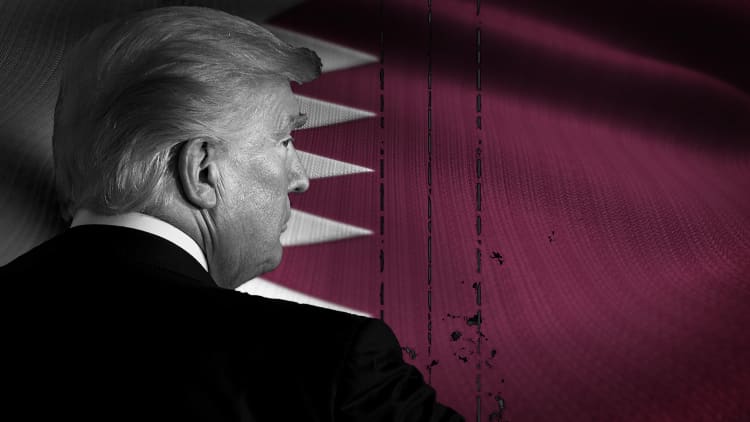U.S. President Donald Trump is facing pushback for saying on Tuesday that he might intervene in a legal case involving the chief financial official of Chinese telco giant Huawei Technologies — if such a move would help Washington secure a trade deal with Beijing.
Canadian Foreign Minister Chrystia Freeland on Wednesday warned the U.S. not to politicize extradition cases, saying that the legal process should not be hijacked for political purposes.
"Our extradition partners should not seek to politicize the extradition process or use it for ends other than the pursuit of justice and following the rule of law," she said when asked about Trump's interview with Reuters where he reportedly said he would intervene in the case if it helped secure a trade deal with Beijing.
Huawei's CFO Meng Wanzhou was arrested in Vancouver on Dec. 1 where she is facing extradition to the U.S. amid claims she misled multinational banks about Iran-linked transactions, putting the banks at risk of violating American sanctions.
Meng has said she is innocent. She was released on bail on Tuesday and is due to appear before a judge on Feb. 6.
In a wide-ranging interview with Reuters, Trump said: "If I think it's good for the country, if I think it's good for what will be certainly the largest trade deal ever made — which is a very important thing — what's good for national security — I would certainly intervene if I thought it was necessary."
Freeland said Wednesday that Meng's lawyers would have the option of raising Trump's comments if they decided to fight extradition.
Is it really the job of the president to start intervening or interfering in judicial matters?David KuoCEO of The Motley Fool Singapore
Back in the U.S., Senator Richard Blumenthal said at a Senate hearing on Chinese espionage that he was worried about Trump's comment as it made it look like U.S. law enforcement was "a tool of either trade or political or diplomatic ends of this country."
In response, Assistant Attorney General John Demers affirmed that the Justice Department is not "a tool of trade."
"What we do at the Justice Department is law enforcement. We don't do trade," Demers said.
Trade war implications
Some analysts said the Huawei incident could cloud the U.S.-China tariff talks. Beijing has been infuriated by the developments and has protested the arrest.
China "has made clear its stern position to the Canadian side and the U.S. side respectively on this matter, demanding them to immediately clarify the reason for the detention and release the detainee, and earnestly protect the legal and legitimate rights and interests of the person involved," said Geng Shuang, a Chinese Foreign Ministry spokesman last Thursday.
On Monday, China detained former Canadian diplomat Michael Kovrig. A second Canadian man, Michael Spavor, has gone missing and is feared to have been detained.
Canadian officials told Reuters that China had so far not linked Kovrig's detention to Meng's arrest. But Canadian diplomatic experts have said they have no doubt the two cases are linked, according to the news agency.
Lu Kang, a Chinese Foreign Ministry spokesman said repeatedly at a scheduled press briefing on Wednesday that he had no information to offer about Kovrig's situation and that the two countries "maintain normal communications on consular affairs."
Strain on China-Canada ties
However, it is clear that Meng's arrest has affected China-Canada relations at a time when Ottawa is trying to boost bilateral trade.
State news agency Xinhua said in a commentary on Sunday that Canada had "hurt the Chinese people's feelings" — a phrase registering state displeasure. Chinese state media reflects official thinking.
Many observers have also questioned Trump's comments in the incident.
"Is it really the job of the president to start intervening or interfering in judicial matters?" asked David Kuo, CEO of The Motley Fool Singapore, a financial services firm.
After all, it's for the courts and the judiciary to decide if Huawei has done anything wrong, Kuo told CNBC on Thursday.
And if it has, "the company has to bear the brunt of it," said Kuo. "If they haven't done anything wrong, then they should be acquitted, and so, therefore, they would say there is no case to answer."
"We're not talking about a president who can intervene in everything — it's not a banana republic after all," said Kuo.
— Reuters contributed to this report.
WATCH: Qatar, the little country causing some big headaches in Trump World


